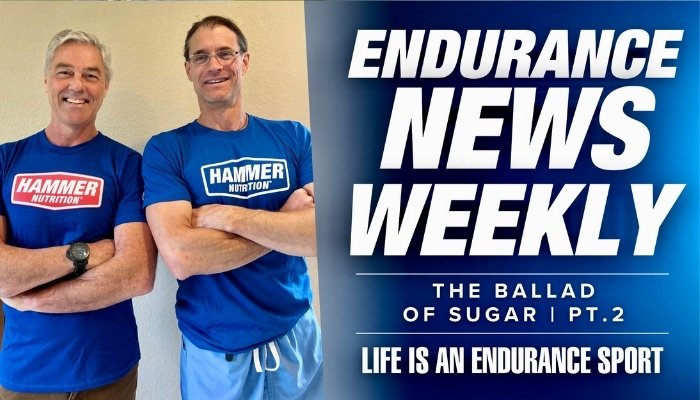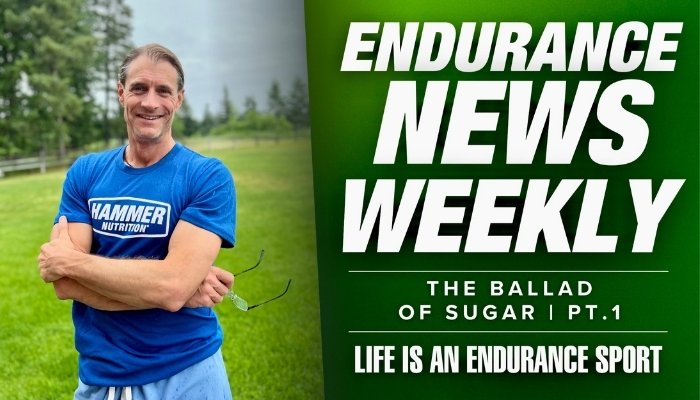
BY STEVE BORN
In “Supplement Protocol For Your Bones Part One”, I listed the nutrients and supplements that have been shown to be extremely helpful for the repair of broken bones, as well as for supporting long-term bone health and protection against osteoporosis. Brief dosage suggestions were also provided. Here I present the rationale and research references for each of those nutrients/supplements, and have provided more details on suggested usage.
As mentioned in Part One, if you’re currently recovering from a bone injury, or you’ve been diagnosed with osteoporosis and/or low bone density, it is highly recommended that you consult with your health care professional before starting on a supplement program. This is especially true if you’re currently taking a prescription medication for these or any other conditions.
Of all the nutrients vital for bone health, magnesium is arguably the most important one of all. Without sufficient magnesium, not all of vitamin D’s benefits can be fully realized. Additionally, while excess calcium has a magnesium-depleting effect (which is one reason I suggest that we all obtain most of our calcium from whole foods instead of supplements), magnesium helps spare calcium stores in the body.
In his hallmark article “Magnesium: The Key to Health and Life,” James South writes: “Magnesium stimulates release of the hormone calcitonin, which drives calcium into the bones where it belongs, and out of the soft tissues where it doesn’t. A high-calcium, low-magnesium diet and cellular environment will thus tend to favor calcification of soft tissues as osteoporosis gradually develops.” He then quotes Dr. Guy Abraham from the early 1980s: “Magnesium has a calcium-sparing effect and decreases the need for calcium.”1
I discuss this and more in my Endurance News Weekly article “Magnesium—The Most Important Mineral for Bone Health,” and I encourage you to read it.
DOSAGE SUGGESTION: The government-set Recommended Daily Allowance (RDA) for magnesium is 420 mg a day for males and 320 mg a day for females. A more appropriate amount to aim for, however, is the Optimum Daily Intake (ODI) standard of 500 - 750 mg of magnesium. Magnesium expert Dr. Mildred Seelig suggests even more precise dosages of 2.7 mg of magnesium per pound of body weight, and for those under severe chronic stress or engaged in strenuous work/athletic training, a dose of up to 4.5 mg of magnesium per pound of body weight.
This trace mineral supplies a surprisingly high number of benefits for many aspects of overall health, including bone health. Boron is vitally important for maintaining and improving bone health because of the role it plays in assisting with the bone-building effects of calcium, magnesium, phosphorus, and vitamin D. Studies show that adequate intake of boron reduces the loss of calcium and magnesium excreted in the urine. That ensures that more of these two important minerals stay in your body.
DOSAGE SUGGESTION: 1 capsule, once or twice daily.
Selenium (found in Premium Insurance Caps and LSA Caps)
The roles that this trace mineral plays in bone health are complex, but it is believed that a portion of its importance comes via its antioxidant properties. As part of the glutathione peroxidase antioxidant enzyme, selenium helps neutralize reactive oxygen species (ROS) free radicals. Levels of selenium that are too low can lead to higher ROS levels, which are considered to be a primary culprit in the development of osteoporosis.
One study examined the relationship between selenium and bone health, and the results showed that the participants who had lower selenium levels also had these abnormalities:2
- Higher osteocalcin levels. Osteocalcin is a non-collagen protein in the bone matrix, and levels are increased in bone diseases such as osteoporosis.
- Higher alkaline phosphatase (ALP) levels. ALP is an enzyme found throughout the body, primarily in the liver, bones, and kidneys. High levels of ALP may indicate liver or bone disorders.
- Higher phosphorus levels. Too much phosphorus in the blood (hyperphosphatemia) can cause the body to pull calcium from the bones to maintain the proper balance of phosphorus, calcium, and vitamin D.
- Lower bone mineral density (BMD), which decreases bone strength and increases the risk of fractures and osteoporosis.
DOSAGE SUGGESTION: The Optimum Daily Intake of selenium ranges from 100 mcg to 400 mcg daily, with 200 mcg daily being the usually suggested amount. More is not better with selenium, so don’t exceed 400 mcg on a daily basis. Some foods—mainly fish such as tuna and halibut—supply some selenium, while Brazil nuts are the richest source of this trace mineral (1 oz contains a whopping 544 mcg). Four capsules of Premium Insurance Caps (57 mcg) and four capsules of LSA Caps (100 mcg) daily will supply you with an ideal amount of selenium.
Research on the omega-3 fatty acids found in fish oil (EPA and DHA) shows that they have powerful anti-inflammatory and antioxidant effects.3 This makes fish oil an ideal candidate for inclusion in a bone-strengthening/anti-osteoporosis regimen, given the role of inflammation in osteoporosis.4 EPA and DHA also reduce activity of bone-resorbing cells, increase that of bone-forming cells, and improve calcium balance.5 Research shows that men and women who consume higher amounts of oily fish (tuna, mackerel, salmon, etc.) have greater bone mineral density than do those with lower fish consumption.6
DOSAGE SUGGESTION: 2 softgels, 2-3 times per day with food.
Hammer Whey Protein and Organic Vegan Protein
A lot of people don’t think about protein when it comes to bone health, but this bit of information should convince you otherwise:
Bone can be imagined as being somewhat like a sponge made of living protein upon which mineral crystals are embedded. By volume, roughly half of bone is comprised of protein. When a fracture occurs, the body is called upon to gather protein building blocks together to synthesize a new structural bone protein matrix. In addition, protein supplementation increases growth factors such as insulin-like growth factor-1 (IGF-1), a polypeptide that exerts a positive effect on skeletal integrity, muscle strength, immune response, and bone renewal.
Protein malnutrition or under-nutrition leads to a “rubbery” callus, the new tissue formed during the bone reparative process. Adequate and high protein intake leads to more rigid calluses that harden into stronger bone. Numerous studies document the acceleration of fracture healing with even a 10- to 20-gram increase in protein intake. The benefits of supplemental protein are important to everyone and especially to those with malnutrition or low baseline protein intake. In fact, among elderly hip fracture patients, poor protein status at the time of fracture predicts fracture outcome. Those with low protein status take longer to heal and have more complications, including death.
Specific amino acids of special importance include lysine, arginine, proline, glycine, cystine, and glutamine. Lysine, for example, is known to enhance calcium absorption, increase the amount of calcium absorbed into the bone matrix, and aid in the regeneration of tissue.
NOTE: Hammer Whey Protein is my go-to protein source, and each serving contains an extraordinary 6,000 mg of glutamine. Hammer Organic Vegan Protein contains ample amounts of the earlier-listed amino acids, so it too is a great option for obtaining ample amounts of protein.
Other Thoughts and Suggestions
Vitamin D - EnDuro D
This vitamin is essential for nearly every aspect of human health. There is a wide range in the amount of vitamin D one needs to take daily to maintain optimal levels—a vitamin D 25-Hydroxy blood test is the only way to know for sure—but the general consensus is 2,000 International Unit (IU) - 4,000 IU daily. Each capsule of Premium Insurance Caps contains approximately 71.5 IU of vitamin D, so a typical four-to-six capsule daily dose will supply you with just about 285 IU-429 IU of vitamin D. Augmenting with additional amounts can easily be done via a stand-alone vitamin D supplement, most of which are extremely affordable and readily available. Most vitamin D supplements (sold as vitamin D3 or cholecalciferol) are produced from lanolin, which is derived from sheep’s wool. There are also vegan-friendly vitamin D supplements, the vitamin D3 being derived from lichen.
Note: Supplements that currently use the “IU” (International Unit) measurement will be switching over to “mcg” (microgram). Each IU of vitamin D is equal to 0.025 mcg, so 25 mcg of vitamin D is the same amount as 1,000 IU.
Vitamin K2 - EnDuro D
Tremendously important for a number of areas in human health, including bone health.
More info at healthline.com/nutrition/vitamin-k2.
BioSil
A silicon supplement made by Natural Factors that I recommend to everyone who has had to deal with bone breaks and/or who needs support for healthy bones. Bones, skin, hair, and joints benefit from silicon supplementation. You can find this supplement at most good health food stores and many online stores. I recommend using the liquid form instead of the encapsulated version because I believe it works better. The liquid form has a terrible taste, so mix the drops in a bit of juice.
SUMMARY
Incorporating as many of these nutrients and supplements in your program will definitely help your broken bone recovery, and it will also help maintain strong bones and stave off bone-related issues.
References available upon request










2 comments
Steve, great article. I used this protocol for a small foot bone fracture last year and I did indeed heal well. I have used Hammer fuels and supplements for 20+ years for cycling and skiing (perpetuem, bars, gel and tissue rejuvinator) and I now include most of the recommendations in this article for continued overall health. 2 questions:
1. Hammer now offers Hammer Collagen. I am already using BioSil on a regular basis for overall health, is Hammer Collagen as comprehensive as BioSil and should I switch?
2. I have a history of kidney stones and take a supplement called Theralith XR. Your bone health protocol helps strengthen bone material but might it also aid in kidney stone formation?
I am 60 years old, endurance mtb and road cyclist and avid skier. Advice on my questions is appreciated as well as overall suggestions for ongoing supplement priorities. Thx!
———
Hammer Nutrition replied:
Thanks for the positive feedback on the article, Steve. Hammer Collagen is completely different than BioSil, which contains a patented ingredient called choline-stabilized orthosilicic acid (ch-OSA) that helps the body produce its own collagen. As such, BioSil would be a very nice complementary product to Hammer Collagen— which contains efficacious amount of Type I and Type III collagen— but definitely not a replacement for it. T issue Rejuvenator is also a superb complementary product to Hammer Collagen. Regarding the kidney stones issue, I have had this awful malady 5 times in my life, which, as you know, is 5 times too many. The product you’re taking is one I am not familiar with, but looking at the ingredient list, it contains what I believe is the #1 nutrient to help to prevent kidney stones from occurring: magnesium. In fact, once I increased magnesium intake to a range of 500-800mg a day (in divided doses), as well as consistently taking Boron and EndurOmega (mentioned in a bit), I have not once had any kidney stone issues going back many, many years. In the Supplement Protocol for Your Bones article, you will find information about our 6-source magnesium supplement, Essential Mg ( https://hammernutrition.com/collections/supplements/products/essential-mg (https://hammernutrition.com/collections/supplements/products/essential-mg) ), as well as Boron https://hammernutrition.com/collections/supplements/products/boron (https://hammernutrition.com/collections/supplements/products/boron) ), which is another nutrient that has been shown to help prevent kidney stones. One other product mentioned is EndurOmega ( https://hammernutrition.com/collections/supplements/products/enduromega), which is our omega-3 essential fatty acid supplement. Research has shown that (https://hammernutrition.com/collections/supplements/products/enduromega) omega-3 fatty acids can help prevent kidney stones by lowering the concentration of calcium and oxalate in the urine. Bottom line is that most of the products listed in the protocol and contained in the Bone Health Kit https://hammernutrition.com/collections/supplement-kits/products/bone-health-kit (https://hammernutrition.com/collections/supplement-kits/products/bone-health-kit) ) will help in preventing kidney stones, not increasing the formation of them. Please email me at sborn@hammernutrition.com if you need more information and/or have additional questions, and I will be happy to help.
Thanks for steering me in the right direction. I really appreciate the information and the quick response. Best regards, Mike Bergin